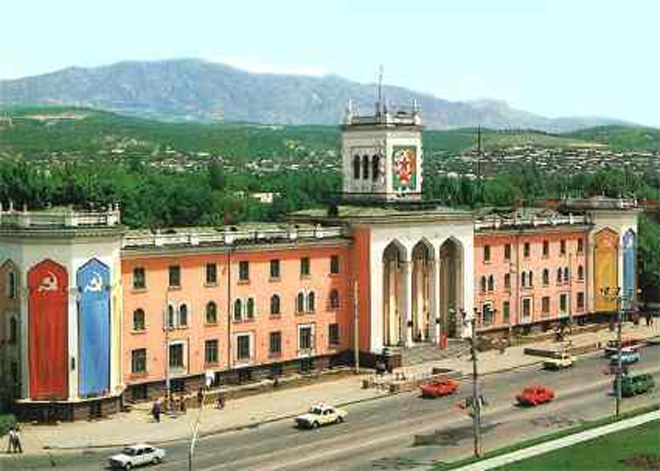Azerbaijan, Baku, Sept.9 / Trend, V.Javoronkova /
The recent blasts in Tajikistan are unlikely to destabilize the country, experts believe.
Two blasts occurred in Tajikistan over the past two week inside a club in Dushanbe and in front of the Department for Combating Organized Crime in Khujand. Two people died and more than 35 were injured.
Concern continues to grow that the situation may destabilize, which could possibly have a brush-fire effect and lead to further tensions throughout the region. The Tajik Interior Ministry has accused the Islamic Movement of Uzbekistan of committing the first blast.
Meanwhile, experts believe that the explosions are unlikely to lead to any serious destabilization in the country.
According to Iranian expert on Central Asia Taher Shirmohammadi, who now lives in Germany, explosions have already been occurring for several years in Tajikistan, but the Tajik security forces have not been able to eradicate the terrorists behind these crimes.
"The basic structure of the terrorist network in the country remains inaccessible," Shirmohammadi wrote Trend ina n e-mail. He added that the most recent attacks were organized by local Uzbeks and Tajiks who are committed to a radical brand of Islam.
Although there is no documentary evidence supporting this claim, radical Islamic sentiment can be found among many Tajiks and Uzbeks in the region, he said.
According to the U.S. expert on Central Asia Alexander Cooley, the attacks mark a significant escalation in the activities and aims of regional Islamic militant organizations.
The bombing of the club appears to have occurred as an attempt to target "Westernized" Tajik youth and the Dushanbe elite frequenting the club, Cooley wrote Trend. Cooley is an associate professor of Political Science at Barnard College and Columbia University and also an Open Society fellow.
According to Cooley, Tajikistan also faces the problem of having little protection along its borders.
"Unfortunately, it appears as if the violence in Tajikistan is only like to increase, as the Tajik-Afghan border remains porous and difficult to defend," he said.
At the same time, Russian expert on Central Asia Andrei Grozin said that, "whoever blew himself up in Khujand did it for ideological reasons," Deutsche Welle reported.
According to the expert, three different groups could have been behind the attack.
"This is either Rakhmon's ideological enemies and his numerous relatives, or those who took vengeance on individual police officers in Khujand, who behave, according to local experts, quite inadequate toward local residents," he said. "Finally, it could have also been people fighting for radical Islam."
However, the situation in the country will not be severely aggravated due to the blasts, Shirmohammadi said. But the country's security forces must continue to combat such acts of terrorism to prevent further explosions from occurring, he added.
Shirmohammadi also said that the Tajik people have lived through a five-year domestic war, and they are unlikely to support renewed conflict.
"The memory of the civil war in the 1990s, when hundreds of thousands of people died or were displaced, still reminds most Tajik people of the tragic consequences of internal conflict," Cooley said.






